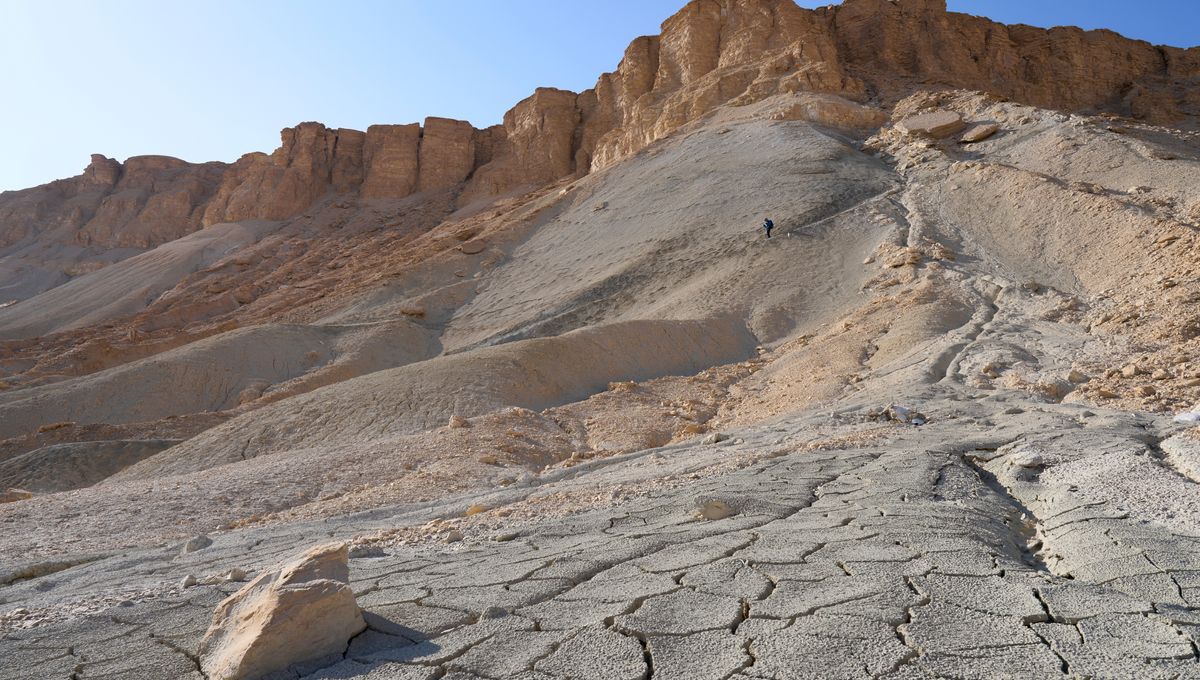
Global warming is flooding low-lying coastal regions, but it’s drying out the land beyond. The most serious consequences of this are for agriculture and ecosystems that depend on soil moisture, but it’s also changing the way the Earth’s axis points, which can be a useful way to monitor the global scale of the changes.
Higher temperatures amplify evaporation from lakes and rivers. They also cause soil to dry out more rapidly. In some places this is counteracted by increased rainfall, but that’s rare. Even where rainfall has increased, it’s often coming in bigger bursts, leaving plenty of time for soil drying in between.
A new study of the phenomenon of water loss from soil has shown that in just two years (2000-2002) global soil moisture declined by 1,614 gigatons. That’s not easy to visualize, but for comparison, Greenland lost 900 gigatons of ice in twice as long, and we can see small examples of that. Continuing loss of soil moisture, albeit at a slower pace after 2002, caused the Earth’s axis to shift by 45 centimeters (18 inches) by 2012.
The Earth’s crust may be a thin skin over a hefty planet, but it can still affect the entire body beneath. If ice builds up in one location, particularly near the equator, that can cause the whole planet to tip slightly, changing the direction where the planet’s axis points. It’s hard to imagine soil moisture doing the same thing, but extra weight is extra weight, whether present in liquid or solid form.
In 2021, research showed the Earth’s axis had tilted more than ice-loss could explain on its own. Loss of groundwater and moisture in the soil must be responsible for the rest, it was concluded at the time.
Now an updated and expanded study has reached the same conclusions, which the authors then used to investigate how badly drought is affecting the planet. A truly astonishing amount of soil moisture was lost between 2000 and 2002, far beyond anything in the two decades before, based on reconstructions using global sea levels of the period before measurements began. Since 2002, moisture loss has continued, with some ups and downs, but at a far slower rate.
The sharp change matches what other evidence has shown for the early years of the century. “There was a period of several years in the early 2000s where there seemed to be a big loss of water from the continents as predicted by a particular climate model,” co-author Professor Clark Wilson of the University of Texas at Austin told BBC Science Focus. “The question is: Was this real? Now we know the answer because we have independent measurements that are consistent with it.”
First author Professor Ki-Weon Seo of Seoul National University added, “Among various models, only [one] successfully captured this dramatic event. Model developers need to assess and improve the accuracy of their models to better project future climate conditions.”
The authors conclude the trend is primarily driven by changes in rainfall, rather than more rapid evaporation. That’s because lower wind speeds and increased aerosol blocking of sunlight have balanced the effects of higher temperatures.
This method for calculating global soil water loss is indirect, but the findings are consistent with what we have learned in other ways. “The frequency of once-in-a decade agricultural and ecological droughts has increased by a factor of about 1.7 compared with the 1850–1990 mean,” the authors of the new study note. They add, “Drought frequency is projected to further rise in accordance with various warming scenarios.”
The study is published in Science.
Source Link: Earth's Rotation Is Wobbling More Than Expected And Now We Know Why